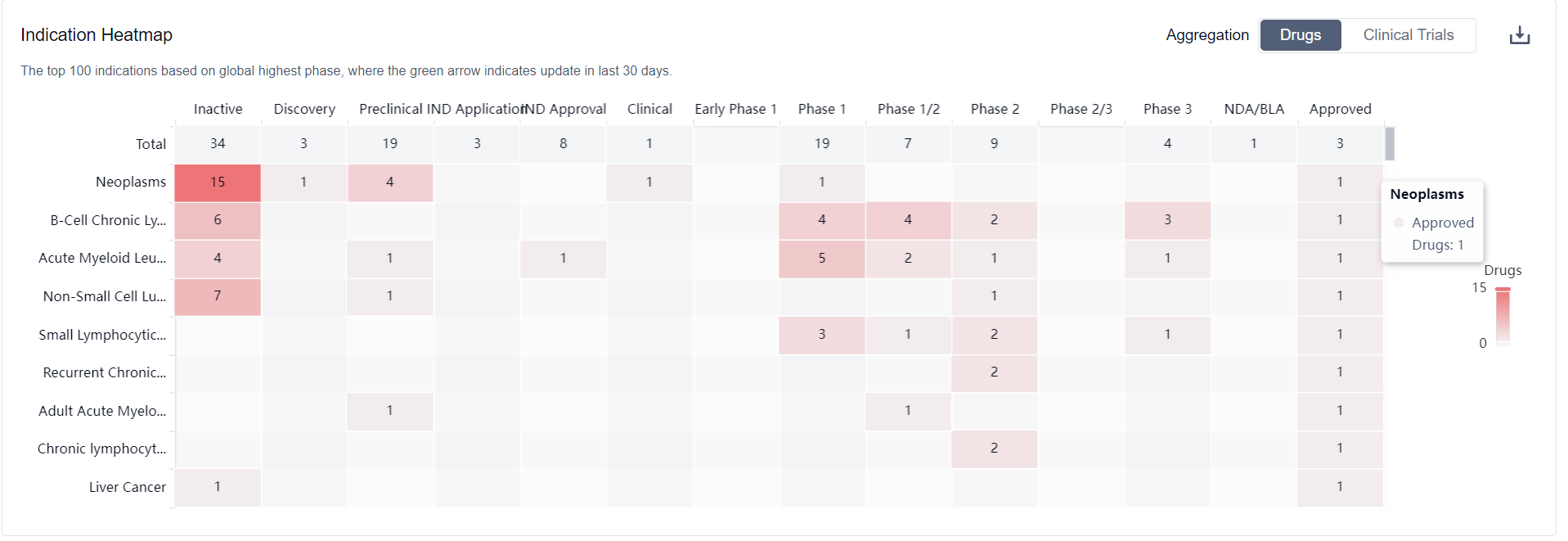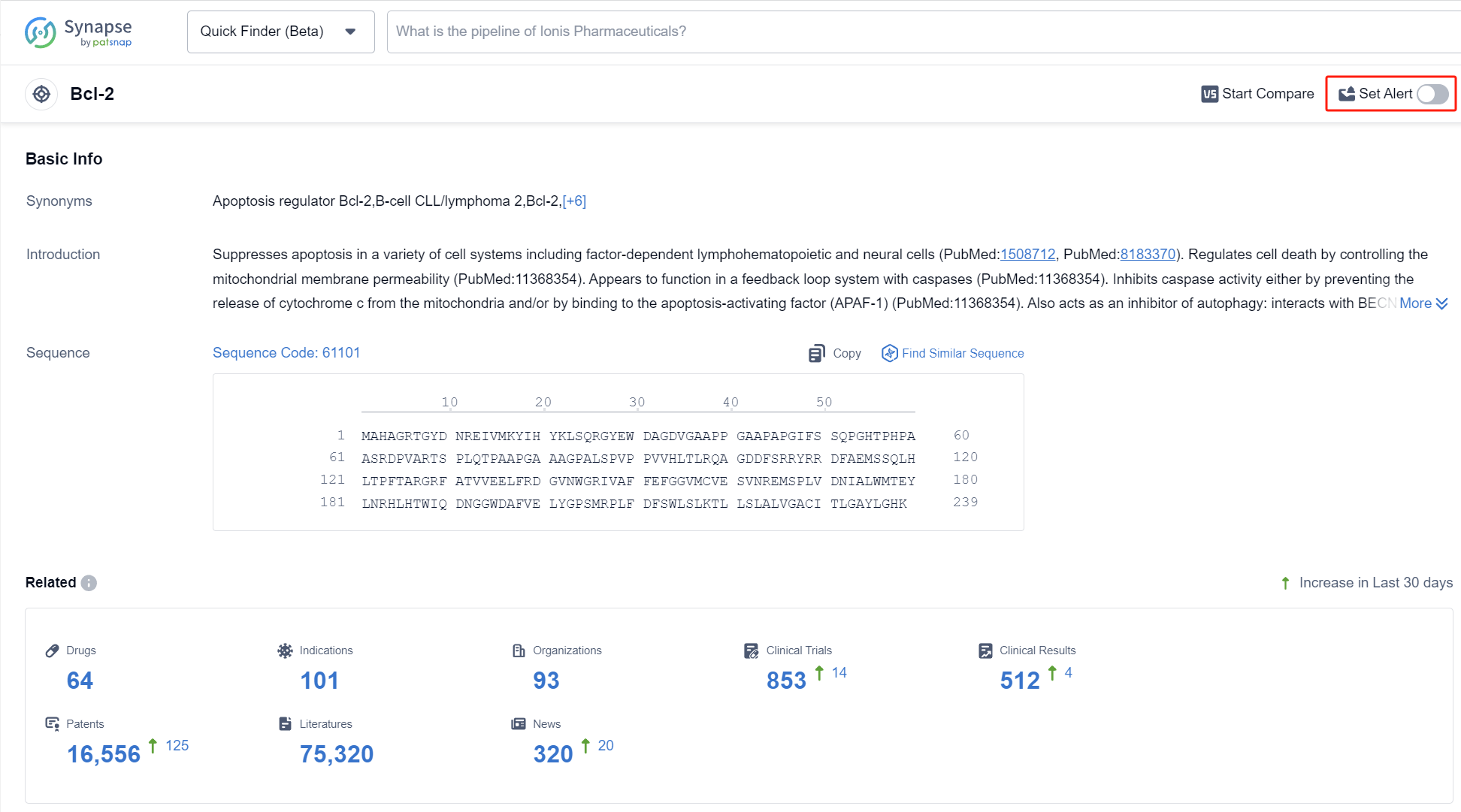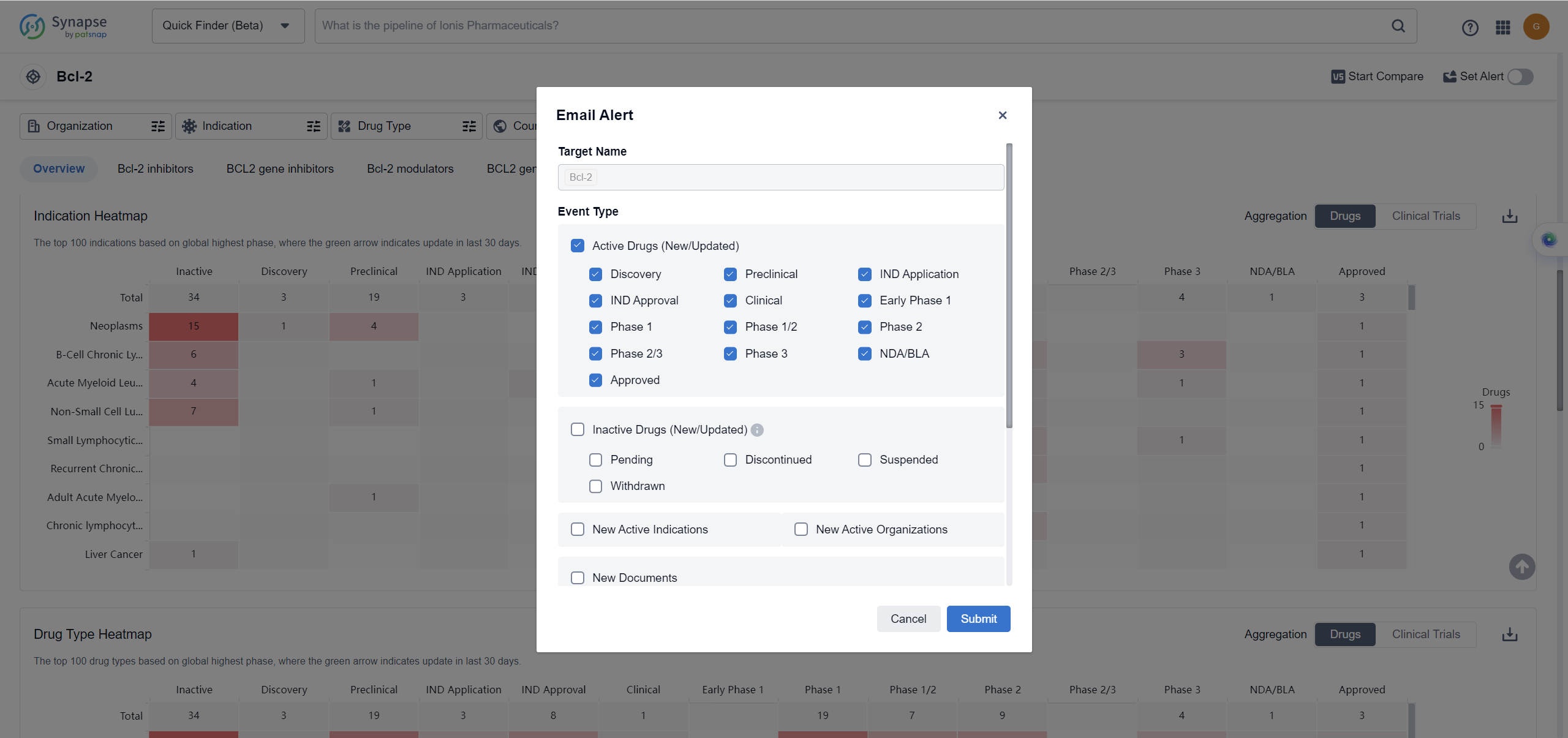What are Bcl-2 inhibitors and how do you quickly get the latest development progress?
BCL-2 is the earliest discovered fragment of the cell death regulatory gene. It is associated with many tumors, mental illnesses, and autoimmune diseases. The BCL-2 protein can form dimers with Bax protein encoded by another fragment from the same family, and also its own dimers, playing a crucial role in cell apoptosis regulation: when the BCL-2 protein is inhibited, the dimer formed with Bax decreases, leading to cell apoptosis; conversely, when the BCL-2 protein is overexpressed, the heterodimer formed with Bax increases, inhibiting cell apoptosis. The balance between BCL-2 and Bax proteins at the checkpoint of cell death signals determines cell survival or apoptosis.
BCL-2 inhibitors as a new therapeutic approach represent a very exciting research area. These drugs can induce tumor cell apoptosis without harming the surrounding or other normal cells in the body, which has great significance in combating tumors. Many chemotherapeutic drugs cannot differentiate between cancer cells and normal cells within the patient's body, leading to cytotoxicity. There is ample evidence suggesting BCL-2 inhibitors can overcome apoptosis resistance in the treatment of various human cancers, and minimize toxicity to normal cells. BCL-2 inhibitors have the potential to restore normal apoptosis pathways in malignant tumor cells with high BCL-2 protein expression, making these cells more sensitive to traditional chemotherapy. In the past decade or so, research on BCL-2 inhibitors has made great progress, with an increasing number of such drugs being used in the treatment of human cancers achieving substantial breakthroughs. BCL-2 inhibitors may represent an important starting point, emerging as a new class of anti-cancer drugs.
How do they work?
A Bcl-2 inhibitor is a type of drug that specifically targets and inhibits the activity of Bcl-2 proteins. Bcl-2 proteins are a family of proteins that regulate programmed cell death, also known as apoptosis. They play a crucial role in maintaining the balance between cell survival and cell death.
In the context of biomedicine, Bcl-2 inhibitors are primarily used in the treatment of cancer. Overexpression of Bcl-2 proteins is commonly observed in many types of cancer, leading to the suppression of apoptosis and allowing cancer cells to survive and proliferate. By inhibiting Bcl-2 proteins, these inhibitors promote apoptosis in cancer cells, ultimately leading to their death.
Bcl-2 inhibitors can be administered orally or intravenously, depending on the specific drug. They are often used in combination with other cancer treatments, such as chemotherapy or targeted therapies, to enhance their effectiveness. Examples of Bcl-2 inhibitors include venetoclax and navitoclax, which have been approved for the treatment of certain types of leukemia and lymphoma.
It's important to note that Bcl-2 inhibitors may have side effects, including gastrointestinal disturbances, hematological abnormalities, and increased risk of infections. Therefore, their use should be carefully monitored and managed by healthcare professionals.
List of Bcl-2 Inhibitors
The currently marketed Bcl-2 inhibitors include:
- Venetoclax
- Kanglaite
- R-(-)-Gossypol Acetic Acid
- Lisaftoclax
- Navitoclax
- Sonrotoclax
- AZD-0466
- FCN-338
- Pelcitoclax
- TQB-3909
For more information, please click on the image below.
What are Bcl-2 inhibitors used for?
Bcl-2 inhibitors are under investigation for indications . Some of Bcl-2 inhibitors have been approved for the treatment of certain types of leukemia and lymphoma. For more information, please click on the image below to log in and search.
How to obtain the latest development progress of Bcl-2 inhibitors?
In the Synapse database, you can keep abreast of the latest research and development advances of Bcl-2 inhibitors anywhere and anytime, daily or weekly, through the "Set Alert" function. Click on the image below to embark on a brand new journey of drug discovery!








